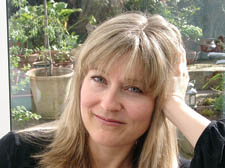|
|
 |
| |

Mel McGrath |
Revisiting the golden days of life in Silvertown
IT was the largest port in the world, the stock room of the British Empire’s trade, a teeming cauldron of humanity from all four corners of the earth.
But from such mercantile bustle in the early decades of the 20th century, Silvertown and the East End fell sharply from grace to become a 1970s wasteland of forgotten docks haunted by nothing more than the memories of the elderly who had resisted following their neighbours in migrating to Essex and north-east London.
Mel McGrath, a Kentish Town-based writer, has roots in the East End, and her curiosity about her past led her to explore the back streets of Poplar, Silvertown and East Ham – and discover the world her grandparents Jenny and Len Page had inhabited had changed beyond all recognition.
She is due to tell the story of her grandparents’ world at the Museum of London: her book Silvertown is full of the daily lives of East Enders from the previous century.
Ms McGrath’s grandparents ran the Cosy Café in Silvertown, and she charts a world they saw: the outbreak of the Great War, the lives shaped by the exotic goods and people who stepped off the boats from the corners of the Empire; the Mile End sweat shops and the disparate communities who all lived together.
She writes of the East End at play – going to the dogs, drinking in the pubs. This partly led on to her most recent book, which focussed on the annual hop-picking pilgrimage East Enders took to the fields of Kent, to earn some cash while having a break from the filthy streets of London.
DAN CARRIER |

|
 |
| |
|
 |
|

